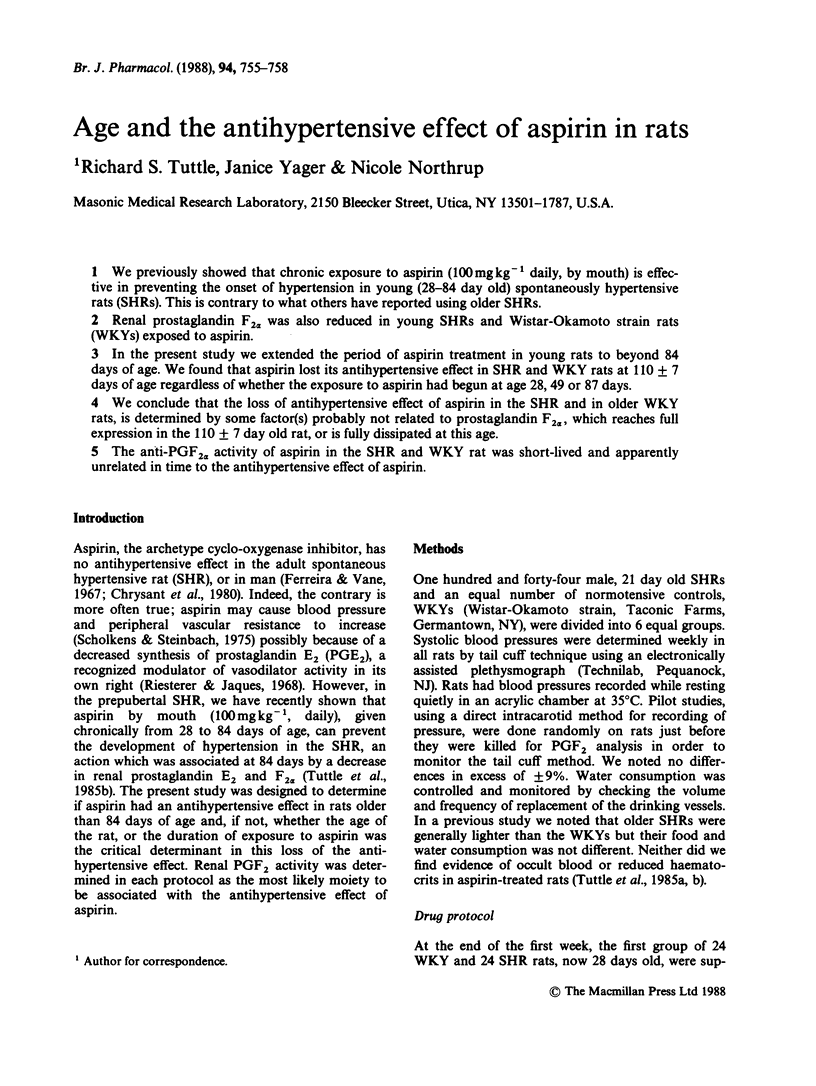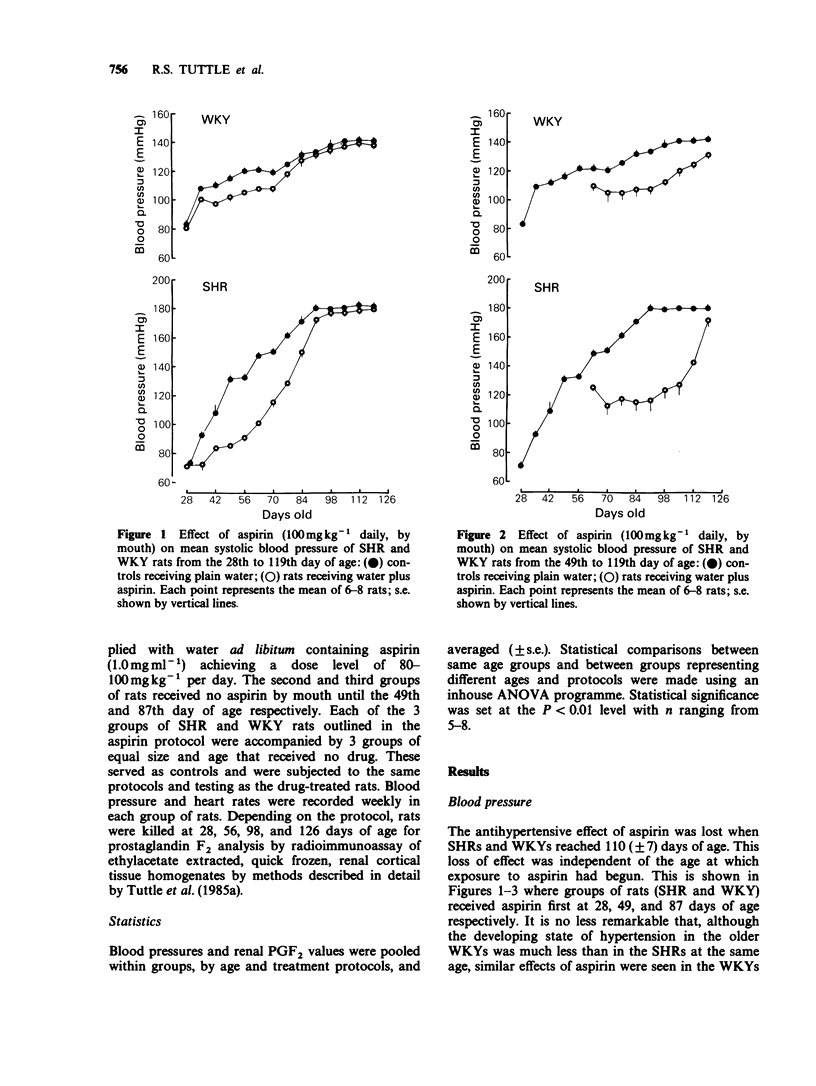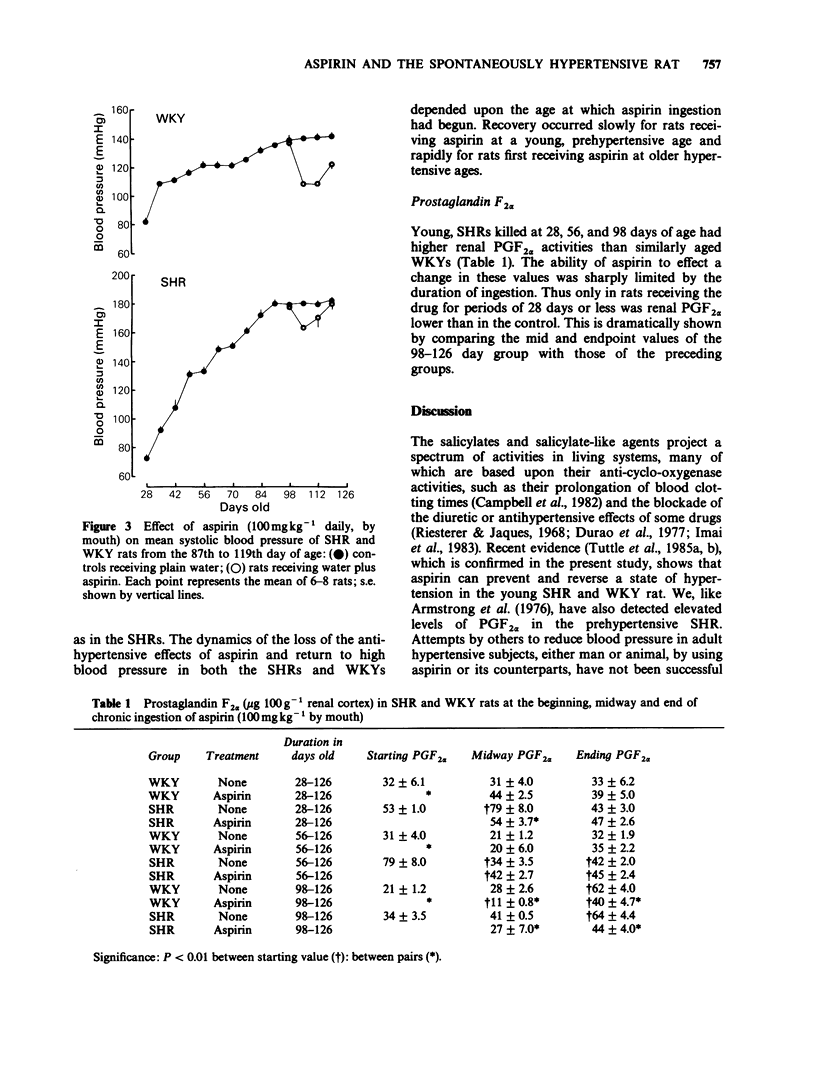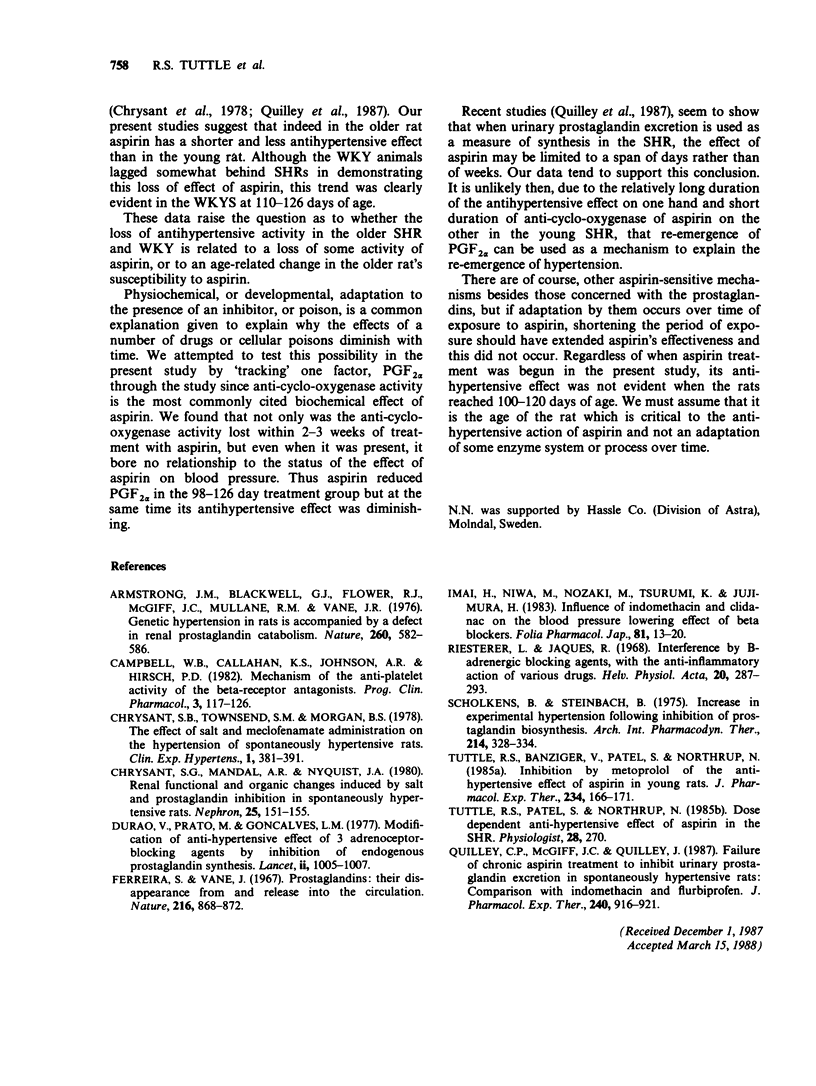Abstract
1. We previously showed that chronic exposure to aspirin (100 mg kg-1 daily, by mouth) is effective in preventing the onset of hypertension in young (28-84 day old) spontaneously hypertensive rats (SHRs). This is contrary to what others have reported using older SHRs. 2. Renal prostaglandin F2 alpha was also reduced in young SHRs and Wistar-Okamoto strain rats (WKYs) exposed to aspirin. 3. In the present study we extended the period of aspirin treatment in young rats to beyond 84 days of age. We found that aspirin lost its antihypertensive effect in SHR and WKY rats at 110 +/- 7 days of age regardless of whether the exposure to aspirin had begun at age 28, 49 or 87 days. 4. We conclude that the loss of antihypertensive effect of aspirin in the SHR and in older WKY rats, is determined by some factor(s) probably not related to prostaglandin F2 alpha, which reaches full expression in the 110 +/- 7 day old rat, or is fully dissipated at this age. 5. The anti-PGF2 alpha activity of aspirin in the SHR and WKY rat was short-lived and apparently unrelated in time to the antihypertensive effect of aspirin.
Full text
PDF



Selected References
These references are in PubMed. This may not be the complete list of references from this article.
- Armstrong J. M., Blackwell G. J., Flower R. J., McGiff J. C., Mullane K. M., Vane J. R. Genetic hypertension in rats is accompanied by a defect in renal prostaglandin catabolism. Nature. 1976 Apr 15;260(5552):582–586. doi: 10.1038/260582a0. [DOI] [PubMed] [Google Scholar]
- Chrysant S. G., Mandal A. K., Nordquist J. A. Renal functional and organic changes induced by salt and prostaglandin inhibition in spontaneously hypertensive rats. Nephron. 1980;25(3):151–155. doi: 10.1159/000181772. [DOI] [PubMed] [Google Scholar]
- Chrysant S. G., Townsend S. M., Morgan P. R. The effects of salt and meclofenamate administration on the hypertension of spontaneously hypertensive rats. Clin Exp Hypertens. 1978;1(3):381–391. doi: 10.3109/10641967809068614. [DOI] [PubMed] [Google Scholar]
- Durão V., Prata M. M., Gonçalves L. M. Modification of antihypertensive effect of beta-adrenoceptor-blocking agents by inhibition of endogenous prostaglandin synthesis. Lancet. 1977 Nov 12;2(8046):1005–1007. doi: 10.1016/s0140-6736(77)92899-9. [DOI] [PubMed] [Google Scholar]
- Ferreira S. H., Vane J. R. Prostaglandins: their disappearance from and release into the circulation. Nature. 1967 Dec 2;216(5118):868–873. doi: 10.1038/216868a0. [DOI] [PubMed] [Google Scholar]
- Quilley C. P., McGiff J. C., Quilley J. Failure of chronic aspirin treatment to inhibit urinary prostaglandin excretion in spontaneously hypertensive rats: comparison with indomethacin and flurbiprofen. J Pharmacol Exp Ther. 1987 Mar;240(3):916–921. [PubMed] [Google Scholar]
- Riesterer L., Jaques R. Interference, by beta-adrenergic blocking agents, with the anti-inflammatory action of various drugs. Helv Physiol Pharmacol Acta. 1968;26(3):287–293. [PubMed] [Google Scholar]
- Schölkens B. A., Steinbach R. Increase of experimental hypertension following inhibition of prostaglandin biosynthesis. Arch Int Pharmacodyn Ther. 1975 Apr;214(2):328–334. [PubMed] [Google Scholar]
- Tuttle R. S., Banziger V., Patel S., Northrup N. Inhibition by metoprolol of the antihypertensive effect of aspirin in young rats. J Pharmacol Exp Ther. 1985 Jul;234(1):166–171. [PubMed] [Google Scholar]



